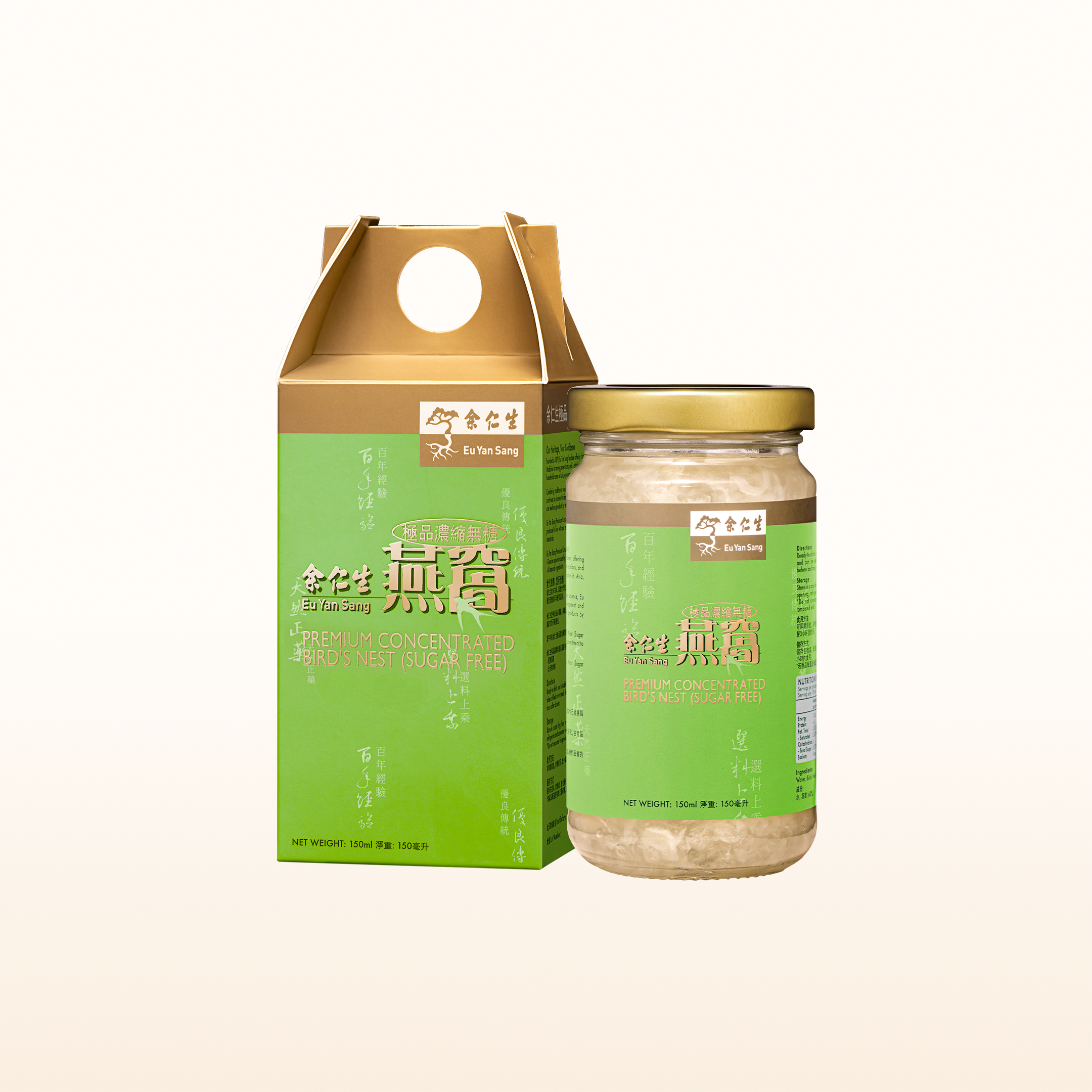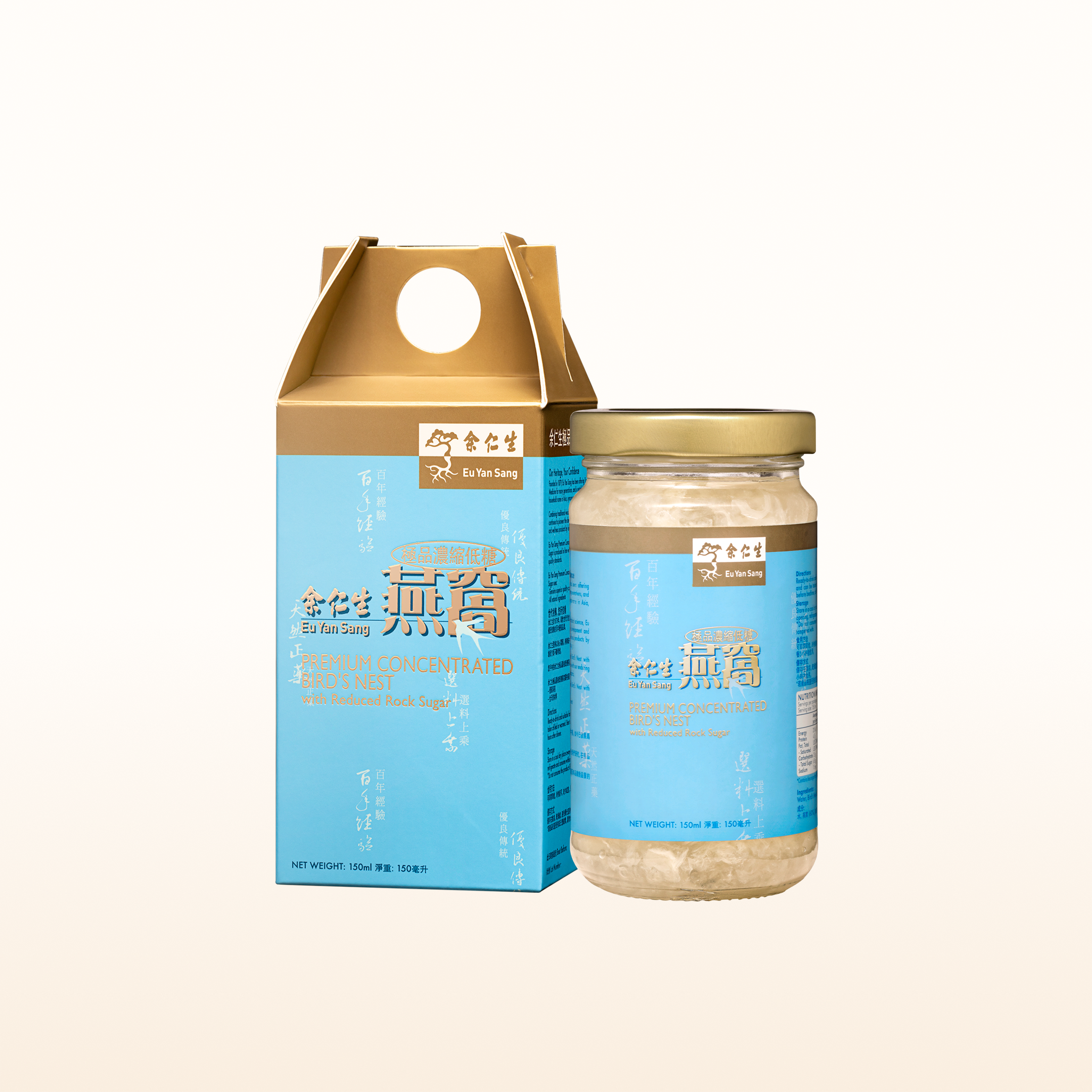Food Choices for Your Baby’s Growth
Early Signs of Pregnancy: Smart Food Choices for Your Baby’s Growth
Posted on 7 Nov 2022

Some of the early signs of pregnancy include changes in your breasts, nausea and vomiting, fatigue, mood swings, food cravings, frequent urination, and back pain. If you are contending with any of these, it’s essential to eat a healthy diet. This can help ensure that your newborn achieves a healthy birth weight and reduces the risk of congenital disorders.
Traditional Chinese Medicine (TCM) believes that the health of pregnant mothers and the foods they eat during the early signs of pregnancy directly affects the congenital jing (congenital essence). When the mother makes healthy food choices throughout her pregnancy, this provides a foundation that supports the baby’s early development.
“When the baby is inside the mother, the food the mother eats and her constitution matter. She will pass some of their characteristics on to the baby, forming the baby’s basic constitution when he or she is born,” says Eu Yan Sang’s Associate Senior TCM physician Lin Jia Yi.
Fortunately, you don’t need to spend lots of money on a special menu – just maintain a balance of the right types of foods! Hitting nutrition goals, especially in the first 13 weeks, can help make sure your growing fetus is healthy.
1. Leafy green vegetables
Leafy greens, such as spinach, beet greens, collard greens, lettuce, and kale, are abundant sources of fiber and essential nutrients like beta-carotene, folate, and vitamins C and K.
Beta-carotene can help strengthen a baby’s immune system and encourage the healthy development of the eyes and tissues. Vitamin C can promote the healthy development of a baby’s teeth and bones. Potassium can help in regulating blood pressure and maintaining fluid balance in your body.
Folic acid is extremely important for the health of the baby, particularly during the early symptoms of pregnancy. This nutrient is derived from a B vitamin called folate. It’s important to produce red blood cells and the prevention of birth defects in a baby’s brain and spinal cord.
It is also common for a doctor to prescribe folic acid supplements to pregnant women or women who intend to get pregnant. This supplement ensures an adequate daily intake of folic acid.
What to Avoid: Unwashed fruits and vegetables – they may be contaminated with Listeria monocytogenes. That microbe can give you Listeriosis, which can cause spontaneous abortions and intrauterine infection.
TCM Tips: From a TCM perspective, many vegetables are cooling in nature. To warm them and lessen their “cooling effects,” cook the vegetables before eating them. Try grilling your salad greens!
2. Well-cooked red meat
 Eating a well-done steak is a good diet tip for women who are experiencing early signs of pregnancy.
Eating a well-done steak is a good diet tip for women who are experiencing early signs of pregnancy. Eating red meat is beneficial for a pregnant woman’s blood supply. It is also important for ensuring an adequate intake of essential nutrients like iron, protein, and zinc.
Sufficient absorption of iron is particularly crucial during pregnancy. This is because increased blood volume is needed to transport oxygen and nutrients to the growing placenta and your fetus.
A depleted level of iron will prevent your body from producing enough red blood cells. This may cause iron-deficiency anemia. Common symptoms of this disorder include fatigue and muscle weakness.
Free-range chicken essence is also a good source of high-quality protein. This is needed during pregnancy to encourage healthy physical growth and collagen production. Alternatively, you can also get this collagen boost by taking an edible bird’s nest, which is good for strengthening a pregnant woman’s joints and ligaments and improving skin elasticity.
What to Avoid: Organ meats – the most popular ones include the liver, tongue, heart, and kidneys. Organ meats are a concentrated source of vitamin A. Eating these meats can trigger a condition known as Hypervitaminosis A. This condition can cause problems to your baby’s development, including their nervous system, eyes, face, kidneys, heart, thyroid, and skeletal development – especially during the early stage of pregnancy.
3. Whole-grain bread
 Whole-grain bread is a healthy option to add to your menu.
Whole-grain bread is a healthy option to add to your menu. By including whole-grain bread in your diet, you’re getting an essential source of energy, including vitamins and fibers – which help boost digestion and maintain your blood sugar level. This wholemeal type is a much healthier option than refined white bread.
What to Avoid: White bread. It doesn’t provide many nutrients or fiber and can cause heaviness in your stomach. You might experience bloating and constipation due to its low fiber and possible high-fat content.
4. Fatty fish
Fish that contain a healthy amount of omega-3 fatty acids – tuna, sardines, salmon, and mackerel – can promote a fetus’s healthy brain development.
Similarly, an intake of omega-3 fatty acid supplements during the first trimester can influence the length of gestation and prevent the onset of postpartum depression. On some days when you can’t stomach foods with strong smells, you can consume a flaxseed beverage to get your dose of omega-3s.
What to Avoid: Mercury-rich fish. Species of fish that are at the top of the food chain like shark, swordfish, and the Southern bluefin tuna contain high levels of mercury. An intake of this metal is particularly dangerous for pregnant women. It can damage numerous parts of the fetus, including the lungs, kidneys, and nervous system. It can also cause hearing and vision problems.
5. Yogurt
 You can create a healthy drink like a yogurt smoothie with fresh fruits for breakfast
You can create a healthy drink like a yogurt smoothie with fresh fruits for breakfast Yogurt is another healthy food that you should consume regularly during the early signs of pregnancy. Yogurt made from pasteurized milk can provide several health benefits, including better digestion, stronger immunity, and a sufficient intake of calcium and probiotics.
What to Avoid: Unpasteurized milk or dairy products. They may harbor Listeria bacteria that causes Listeriosis. If this happens during the early stages of your pregnancy, it can put you at risk of miscarriage, premature labor, and delivering an underweight infant. It also increases the risk of fetal death.
6. Ginger
Commonly known as a spice, ginger is a traditional remedy for various health problems, such as coughs, indigestion, and metabolic disorders. Based on TCM belief, ginger is predominantly yang and is directly linked to three meridians — the spleen, stomach, and lungs.
Specifically, ginger can disperse Wind-Cold, warming the stomach and spleen, draining dampness, and supporting a healthy flow of qi. TCM Physician Lin states that ginger can suppress morning sickness as it has a warming effect on spleen qi.
You can make an easy concoction by steeping fresh or dried ginger in hot water to alleviate nausea and vomiting during the early signs of pregnancy.
What to Avoid: Foods or beverages that are yin (cold) in nature. They can cause dampness in the body and, consequently, trigger an imbalance of spleen qi. These foods include bananas, lettuce, sashimi, white cabbage, and beverages prepared using barley, chrysanthemum flowers, or tea leaves.
As you adjust to the many and astounding changes that happen to your body during the first months of your pregnancy, you want to do everything you can to make sure that you have a full-term, healthy-weight baby at the end of nine months! Eating a diet that helps you and your fetus thrive is just the beginning. TCM Physician Lin urges you to stay active. It can help you maintain good posture and ease backaches. Studies also show that regular exercise during pregnancy may help prevent gestational diabetes, reduce the risk for Cesarean section, and make labor less difficult.






